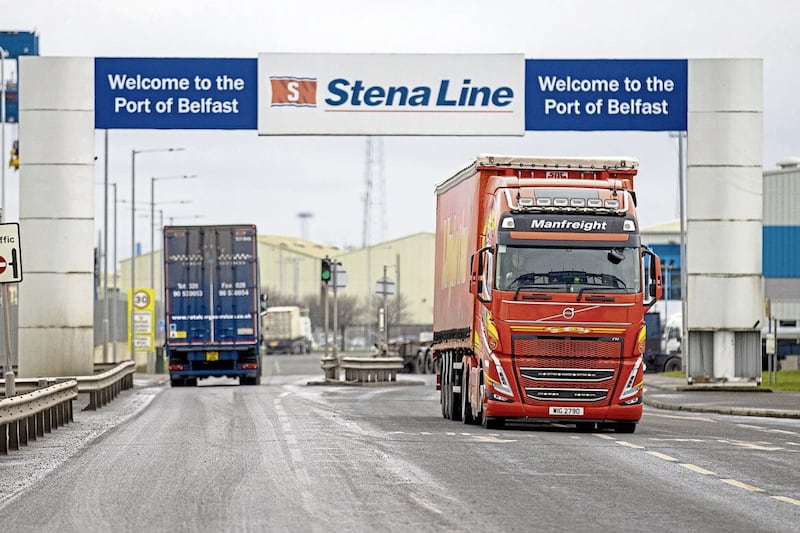“WHATEVER is achieved by businesses in Northern Ireland is despite our politicians, not because of their decisions or support . . .”
These are the words of a senior business figure at an event just two weeks ago. Overall the sentiment and mood was positive but this one statement, widely agreed with by those in attendance, is a damning summary of the broken relationship between politics and economics in this place. When that bond is broken it does put a strain on business development and my sense at the moment is that the lack of trust and even communication between political leaders and the business community is at an all time low.
You may not have noticed it but the dawn of dual market access for Northern Ireland businesses arrived over the weekend. October 1 was when the practical realities of the Windsor Framework came into force, offering clarity, certainty and overall, an opportunity for businesses here.
Last week I was at a gathering of business leaders who were joined by political representatives and business owners from the USA, all under the banner of the 2023 version of the now annual Belfast Homecoming event. This was a panel discussion hosted by Invest NI where the mood was emphatically and unanimously upbeat and where the certainty of the details of the Windsor Framework were very much welcomed. It was very obvious that the business owners and managers in attendance regard that Framework as the final outcome of a troublesome, varying and unsettling 6 year post Brexit period.
One of the speakers was Kieran Hegarty from Terex, who crystallised very succinctly and precisely the benefits of dual market access. From their base in Mid-Ulster, Terex can export to the EU trading bloc, and can trade into GB, all with minimum fuss.
Kieran summed up the context which companies favour: “Business wants as much certainty and as little paperwork as possible. That is what we now have.”
He went on to explain that exporting from their GB base in Gateshead into the EU is an administrative headache which of course does not apply to Terex sites in Dungannon, Omagh or Derry. Remarkably the flourishing crushing and screening sector which is anchored in Mid-Ulster supplies over 40 per cent of the materials processing machines and platforms used around the world. In Kieran’s view, dual market access will consolidate that world leading position and foster even further growth.
The other local business representatives who attended the event were in agreement, the dual access status of manufacturing businesses in Northern Ireland is an undoubted advantage.
Claire Guinness, the new head of the Belfast Chamber of Commerce, stressed that if the UK Government ever does get round to signing international trade deals, yes it could happen, then of course we get those benefits too. She called it a ‘win win’ outcome.
There have been a number of other high profile business gatherings lately. From the much acclaimed Northern Ireland Investment Summit a few weeks ago and the Saffron Business Forum networking event the mood was positive, in spite of the ongoing political stalemate.
At the Homecoming Event state legislators from New York and California were encouraged by what they were hearing and were encouraging stronger links between our economy and theirs.
I suppose it has always been true that the business community here always did forge ahead despite the political or civic context, even throughout the decades of the troubles. That will continue but I really cannot help feeling that a functioning and stable Executive could only add to the overall offering our companies can make.
All of our politicians have flaws, of course. We all do. But it was easy to see that people like Gordon Lyons, the most recent Economy Minister, embraced the role and brought an energy to it which was beneficial to Northern Ireland. So too did Arlene Foster, notwithstanding the RHI debacle. She was the longest serving Economy Minister we ever had and did a good job in attracting inward investment here.
How far the pendulum has swung to the point where some politicians are not only disengaged from the needs of business, but are actively working to drag out the uncertainty of recent years, and to block the advantages of the dual market access we now enjoy.
At each of the business gatherings I was at in the last month, the most consistent message was the need for certainty and stability. Is the DUP listening?
:: Brendan Mulgrew is managing partner at MW Advocate (www.mwadvocate.com). Follow him on Twitter at @brendanbelfast








